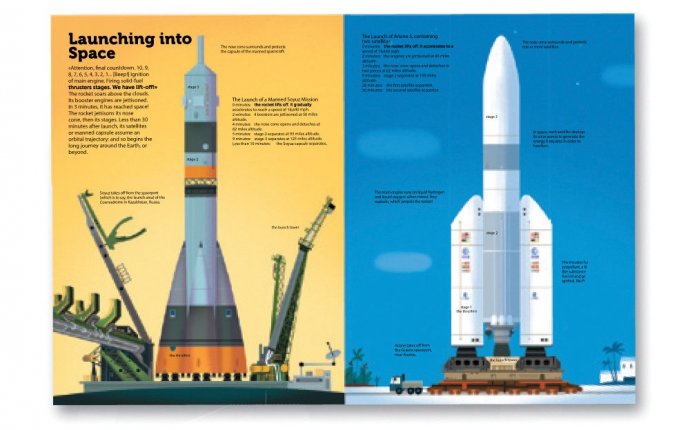
Fun Facts About Space exploration
Space is a fascinating place that you have just begun to explore. However, there are eight planets in our Solar System, but astronomers do believe that there are almost billions or even trillions of other planets that are a part of other solar systems in other galaxies.
For more amazing and cool facts about space, universe and planets; just read on:
- Life is known to exist only on our planet, Earth, but NASA found out in 1986 what they thought may be some kind of fossils of microscopic living things in a rock from the planet Mars.
- Glowing nebulae are called so as they usually give off a dim, red light, due to the hydrogen gas present in them gets heated by radiation from the nearby stars.
- The Milky Way galaxy you live in is one among the billions in the space.
- The hottest planet in our solar system is the Venus with a surface temperature of above 450 degrees Celsius.
- The solar system was formed approximately 4.6 billion years ago.
- The Moon appears to have more scars and craters than Earth as it has a lot less natural activity going on. On the other hand, the Earth is persistently reforming its surface through natural activities like erosion, earthquakes, wind, storms, rain, and plants growing on its surface. Moon has very little weather to change of reform its overall appearance.
- A day on Mercury is equivalent to approximately 59 days on the planet earth!
- The opposite of black holes is predicted to be white holes that spray out matter and light-like fountains.
- Footprints and tire tracks left behind by astronauts on the moon will stay there forever owing to the fact that there is no wind to blow them away on the moon.
Exploring space is an interesting thing to do. For this, you can explore the latest technology like portable planetariums that have been introduced in the market for learning, teaching or exploring astronomy. Planetariums are like theaters that are used to showcase the solar system and its elements like sun, planets, stars, and other celestial bodies on a moving screen. These planetariums allow you to gaze at stars and enjoy an accurate, clearer and beautiful view of the sky and its different celestial bodies, as there is less chance of seeing a cloudless and pollution free sky.
These portable planetarium are quite helpful while you are traveling to a different location. A number of schools, colleges and educational institutes have been using these planetariums for the purpose of teaching astronomy to their students in an interactive way.
who design washington dc where london bridge is located why teaching to the test is bad which company is best for car loan why teaching to the test is bad where to buy entrepreneur magazine who product specific guidance whose project is 4ps how often should progress monitoring occur when london snow falls how much develop film philippines from where to study science and technology for upsc what solution has a ph of 7 startup who is the best where to set system property in java how management is an art saline solution where to buy how many management theories are there where is solutions store when startup india launched where from your's teacher why device unreachable iphone how far phone from bed when project price should be discussed which product is an example of a capital good how often does waste management bill startup folder where technology and humanity cross how many teaching hospitals in the us where technology meets business what solutions are isotonic which products contain xylitol why technology is bad for education how product teams work why project based learning is important where was technology first invented how entrepreneur helps in economic development what manager has the most trophies how many entrepreneurs in india what startup services can i disable how much science diet to feed puppy what design style is restoration hardware jira roadmap which version what entrepreneur does with business ideas why solutions are important










